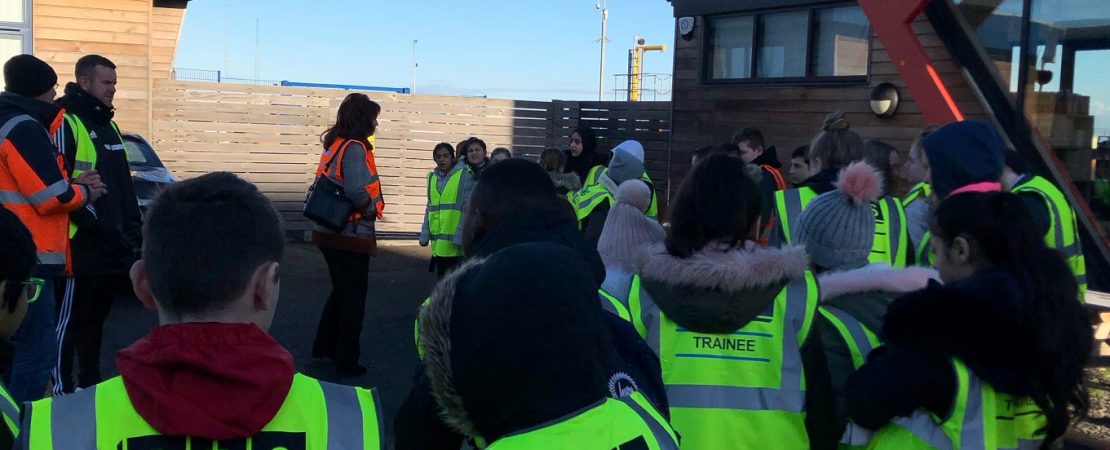Can you tell us about FDisruptors and why the company was established?
I’ve had a 25-year career in marketing and growth strategy, working with some amazing companies and talented people. Quite a lot of those were very male dominated though; women were few and far between, and so I have always understood the challenges that women can sometimes face when they enter into male dominated industries.
A few years ago I started to have conversations with my teenage daughters about where they wanted their lives to go and sadly they did not seem to be talking about tech at all – I became really conscious that if young women didn’t look at tech as a serious career opportunity they could be left out of some of the most exciting industries and innovations that we have ever seen.
When I set up FDisruptors I didn’t want to build something women didn’t want or need. I felt strongly that it was time that we started a different narrative around tech – a narrative where we showed them the magic of tech and the impact they could have in the world if they jumped on board. So I designed a pilot programme of learning and gave them access to opportunities to help to build their confidence and primarily to shift their perceptions on technology and their perceptions of what they were capable of. It was the best four months of my career to date and it formed the basis of what has now become the new FDisruptors platform.
Is there more organisations could be doing to encourage young girls and women into the tech sector?
Storytelling is key, that’s really important. Young people and young women engage with authentic stories. They want to hear about real people – people who have changed careers or failed and got back up, or taken a new unexpected path and succeeded – or sometimes not.
It’s also important to hear from women who have done it in lots of different ways and from women from lots of different places – we need different voices, opinions and backgrounds. Storytelling resonates because a girl will see that and think – if they can do it, I can do it too.
A confidence gap still exists too. To inspire girls, and make them think they can, we need to work on self-belief and confidence as well as equipping them with real world skills for a very new world of work. We cannot drive more women to choose a career in tech without giving them the tools to also thrive within that industry – if we do that then you will not only see more women in tech but they will also be driven by purpose, and will be armed with talent and skills that will absolutely transform tech across every industry.
Are any succeeding in making a change?
I’m talking to more and more companies that are very intentional in their desire to invest in diversity, which is very positive. However, it’s not just about changing the language in a job description; it’s about a layered approach. We have a huge challenge ahead of us and culturally it’s a big issue to unpick. Ultimately a more diverse workforce is good for business, good for your culture, makes you a much more appealing place to work and makes it a more interesting place to work. It also ensures that you are building products or developing services that more truly reflect the customers and communities that you serve. So there really is no excuse for not integrating diversity into your workplace – it is essential to running a successful business of the future.
What’s been your personal experience as a women working in the tech/creative/digital sector?
Overall it’s been great but of course there are some challenges. Having worked in other industries that are also male dominated though I have to say that I don’t think tech is the only industry that has challenges with diversity and the promotion of women to leadership positions.
On a personal note I was surprised to experience ageism when I was initially raising finance for FDisruptors. There can be an assumption that the majority of people developing tech platforms are young and that is absolutely not the case. Tech is the single most accessible sector in which to develop a business or a career regardless of age, background, ethnicity or gender. I just need to be armed with my creativity and a laptop and the rest is up to me – no restrictions, no limitations. If we truly want to attract more diversity into tech then we have to challenge stereotypes at all levels and quickly.
What are the barriers to women pursuing a career in STEM?
I think many women have a perceived stereotype of what a person in tech looks like. It’s a white guy; a maths genius or physics geek and they’ll be coding at a computer all their life.
When we have presented tech to girls in the past it has been a bit one dimensional – presenting only code clubs means that they only see one part of the picture. There is so much more to tech careers and being a tech entrepreneur, and it is absolutely vital that they get to see much more variety surrounding those pathways and the role models within tech across every sector.
There is definitely still a confidence gap too – it has been proven that confidence in girls experiences a huge dip during the ages of 8-15. This is key, as it is right at a time when they are expected to make some of their biggest decisions around study and careers. During my pilot programme we saw the positive results of leading with confidence training – ultimately if we can change the lens through which a young women sees herself we can change her outlook on what she believes she can achieve.
What role does education have to play in supporting more women into STEM roles and employment?
Schools have a huge part to play, and their role as influencers around careers have really come under the spotlight in the past few years as highlighted by the Gatsby Report. Ultimately, we are working with schools to help them to be able to equip their students with the skills that are absolutely needed from the workforce of the future. That is two fold for us – firstly we need to work together to get better about encouraging girls to take STEM subjects but more than that – we need to get better at helping them to visualise how they will progress into a STEM related career as without this context the stats show that even girls who do choose STEM will still not enter into this field.
It is also about delivering tech skills to every single young person, regardless of their chosen career, so they are more equipped when they join the world of work. Tech should be integrated across the curriculum giving us the best possible chance to send fully fledged digital citizens out into a world that is now digital by default.
I had a really amazing conversation with a head teacher recently about how they want to create more alternative pathways for young people – she said it was time to look at students as individuals and who they are right now, so they could provide better careers advice and not only drive students towards Universities but support them into a much wider variety of career options. This kind of approach is great to see, but it will require much more support and funding for careers in schools if we have any hope of integrating it in this way.
Who are your female role models in the STEM sector?
For me, I love people that are doing things quietly but brilliantly.
There is a fantastic free app on the market called Clementine, which is designed by women for women. It’s all around confidence, self-belief, reducing anxiety and focusing on sleep, meditation etc.
I also love people like designer Stella McCartney who is reaching out and collaborating with tech in a way we’ve never seen before. She has worked with Bio Tech pioneers, Bolt Threads, on a project to create ethical, sustainable fashion using science and new technology. It’s a brave and bold move but it is so exciting to see pioneers coming together to produce something new and unique that might just change the way our clothes are made and ultimately save the planet.
There’s more information on the FDisruptors website.





